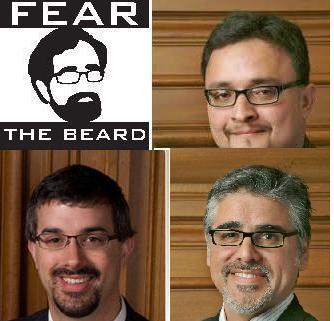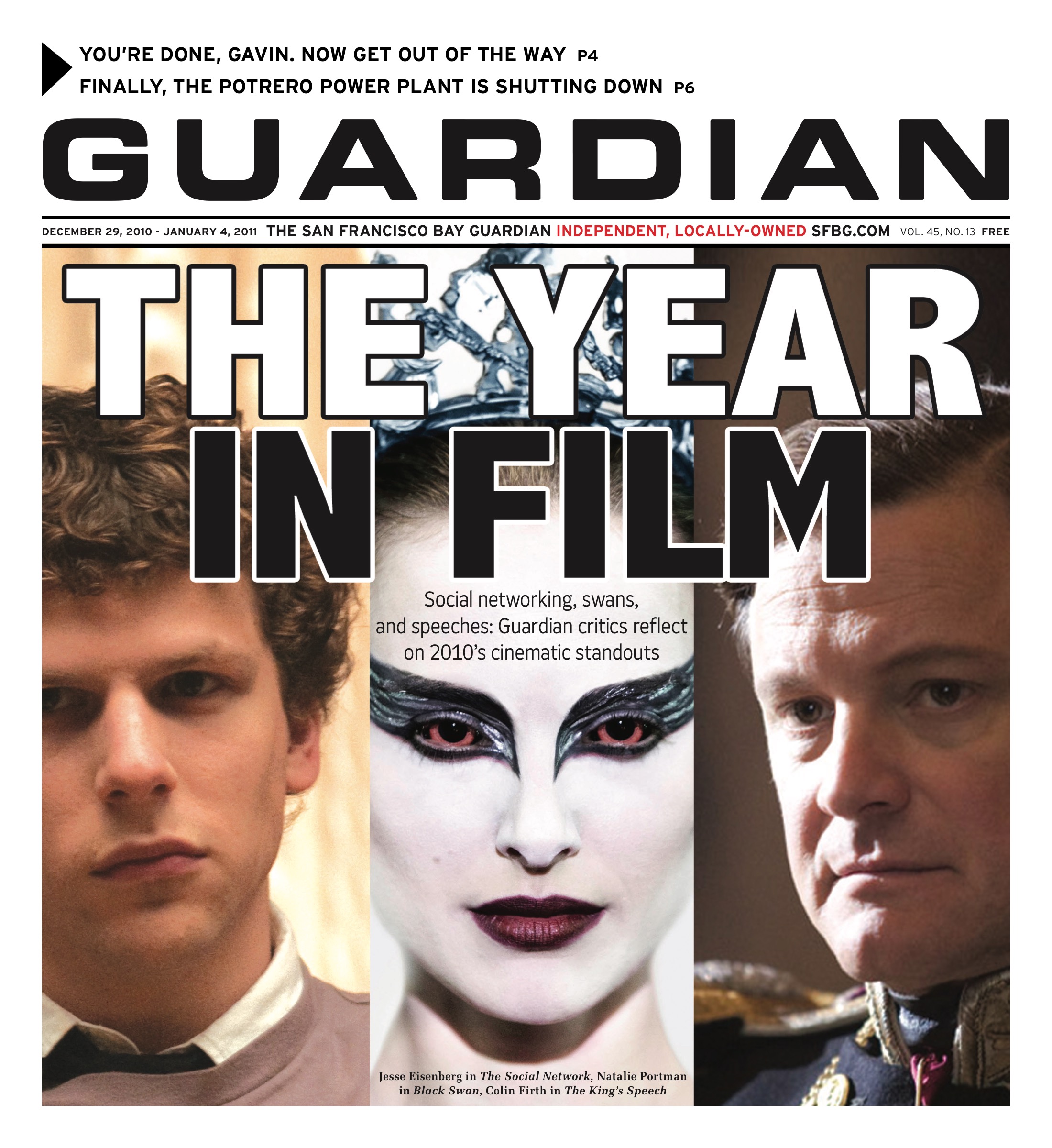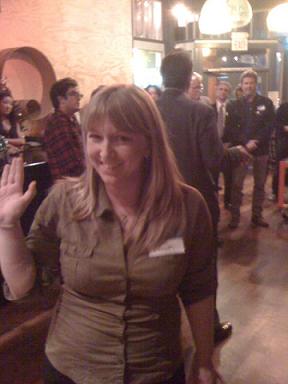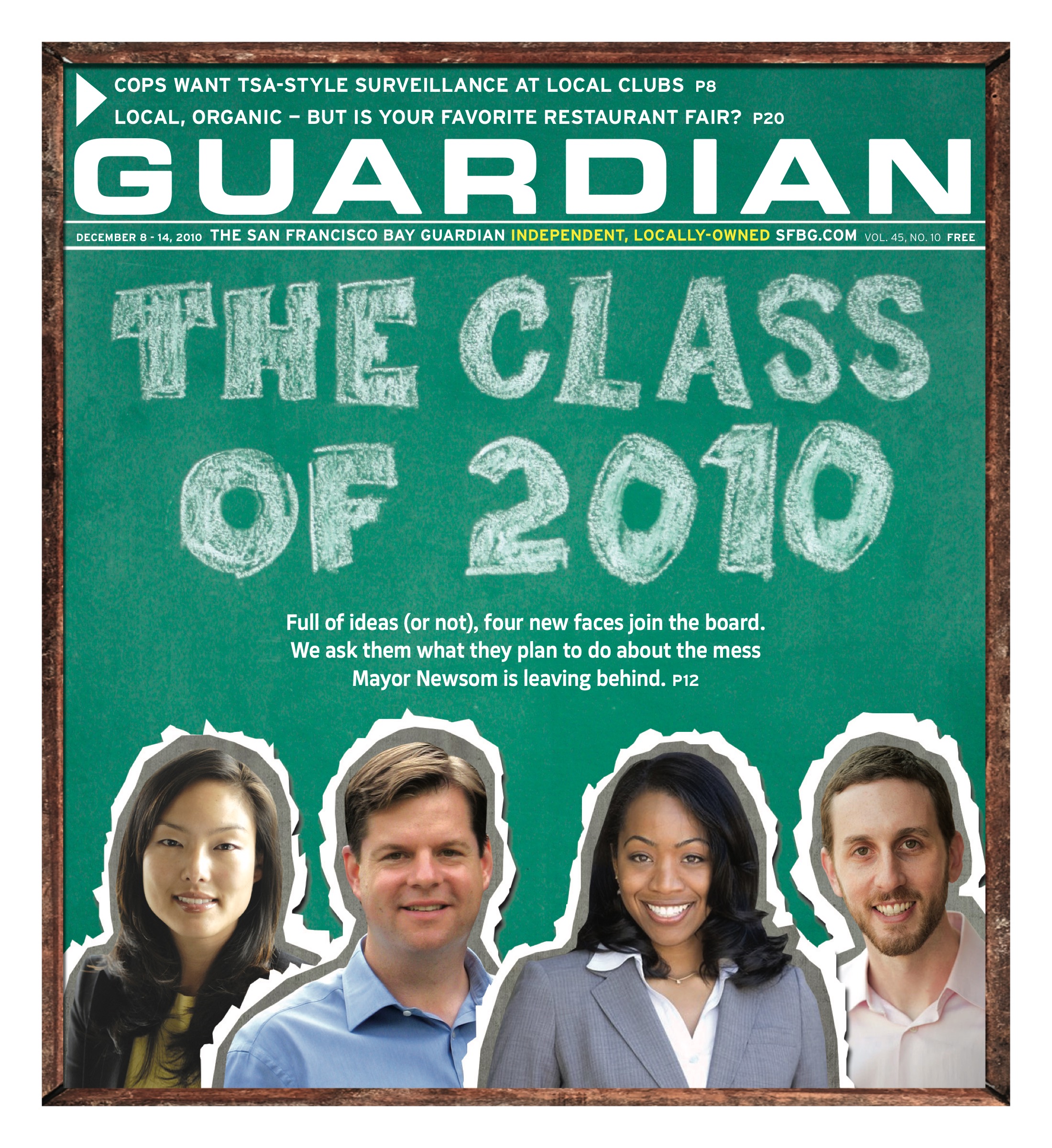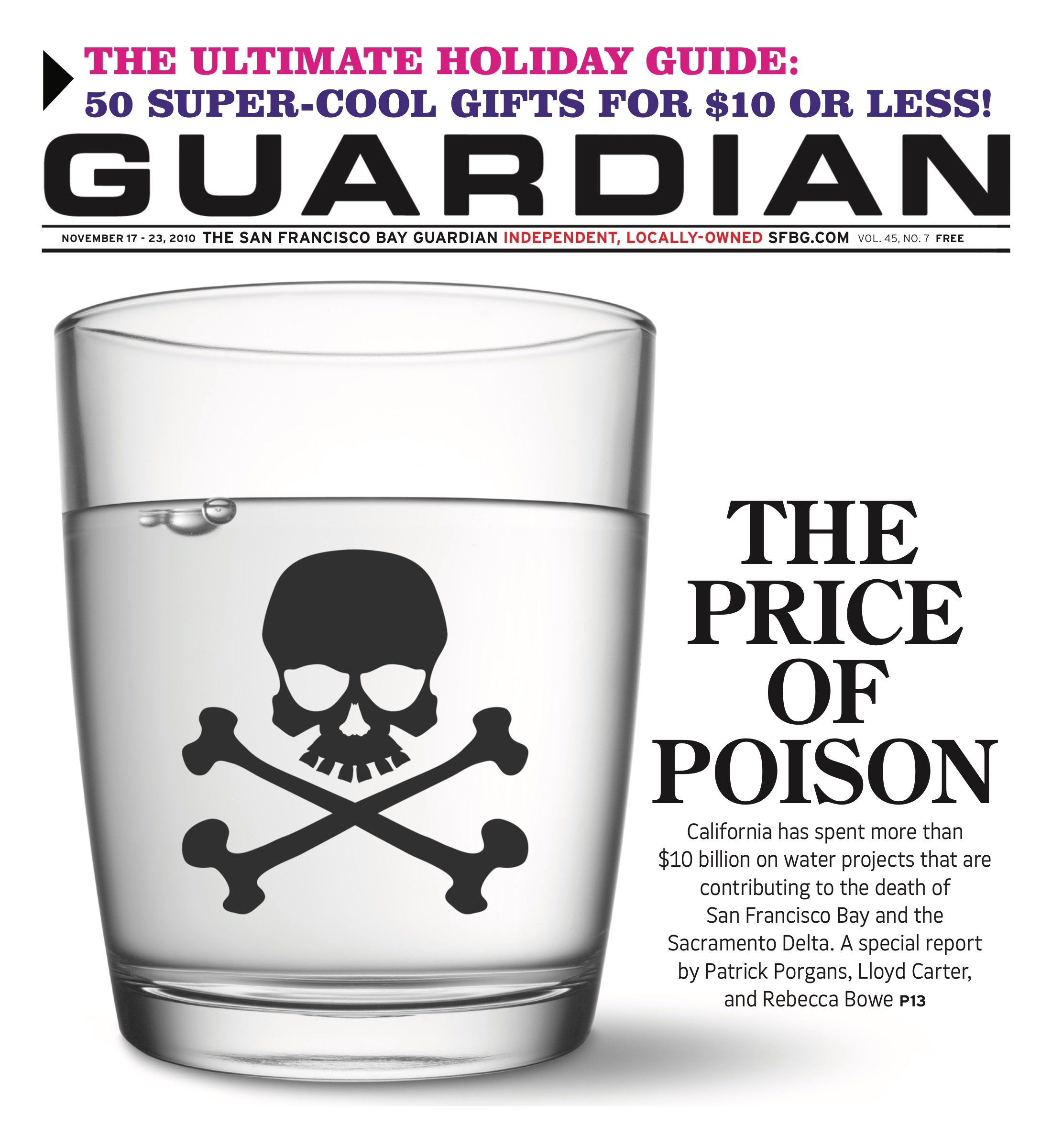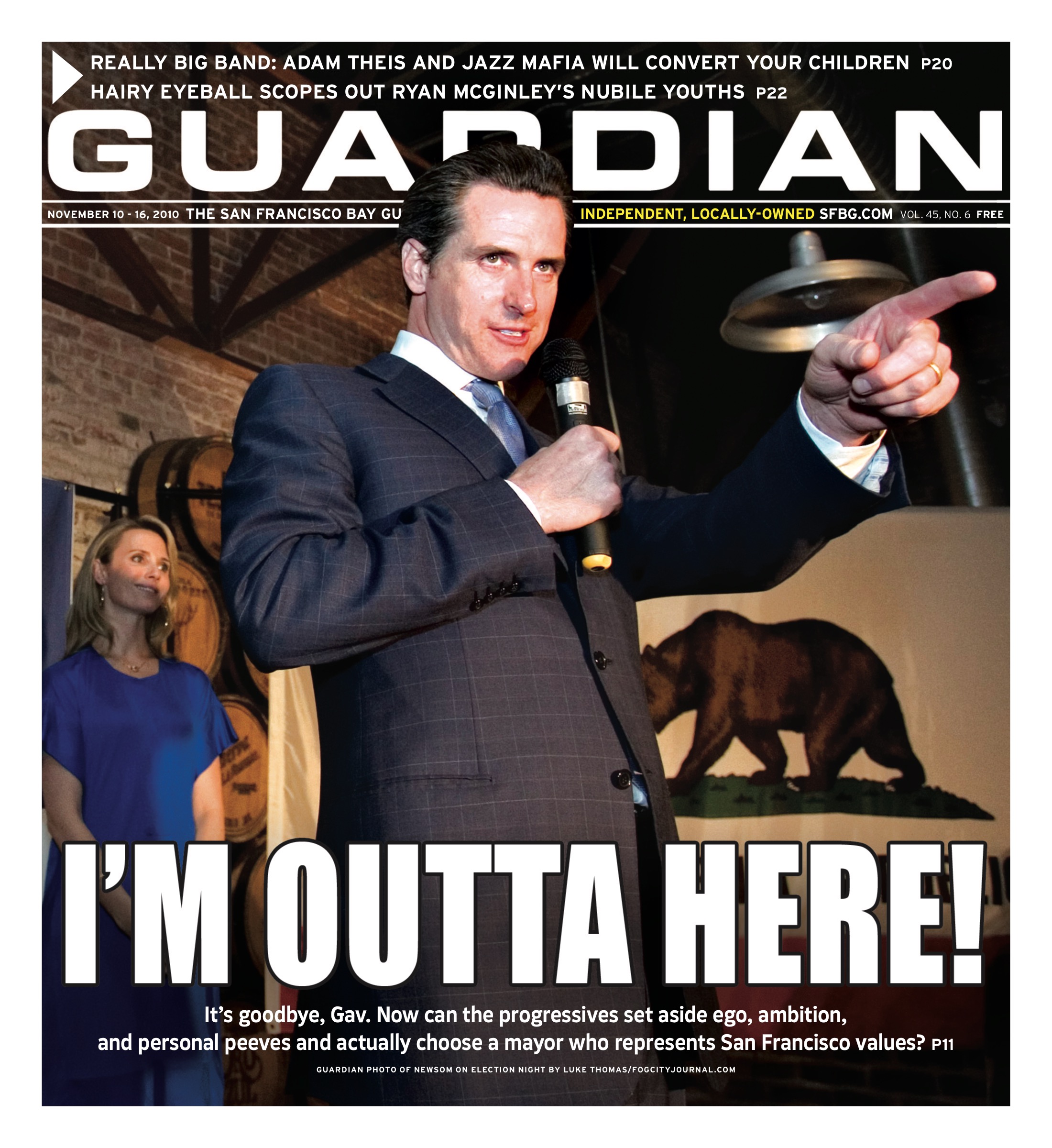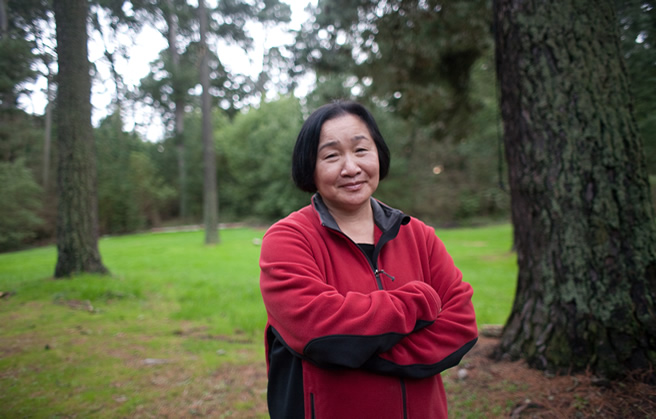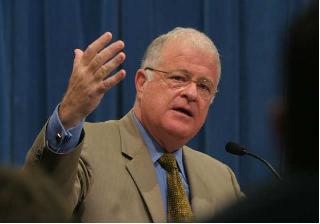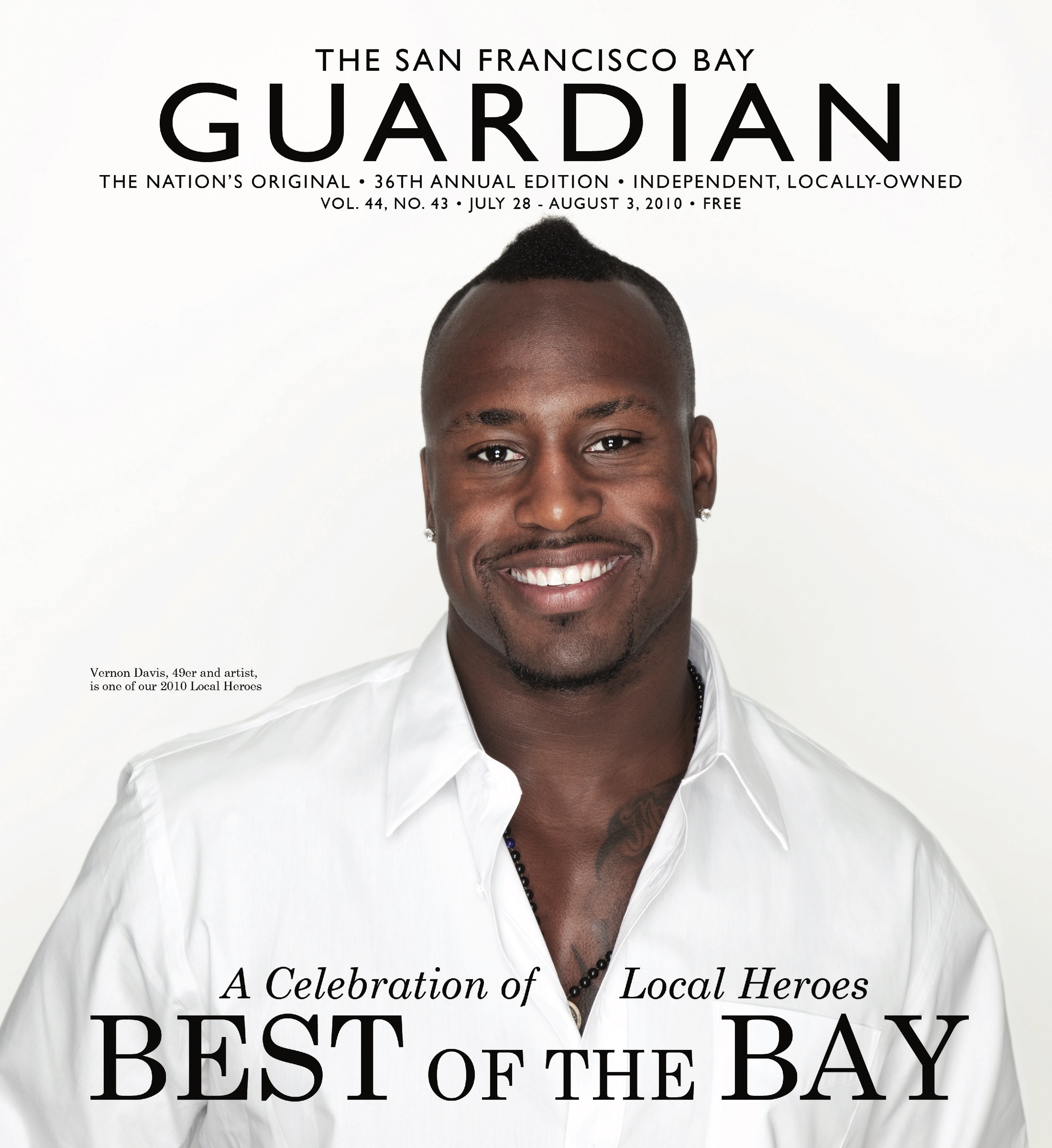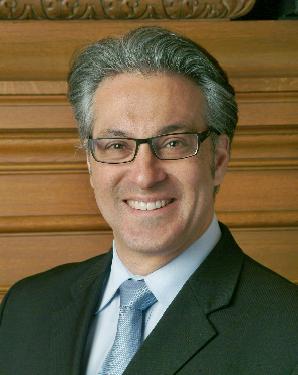SAN FRANCISCO MEASURES
Proposition A
San Francisco General Hospital bonds
YES, YES, YES
This critically needed $887 million bond would be used to rebuild the San Francisco General Hospital and Trauma Center, which is currently not up to seismic safety codes. If the hospital isn’t brought into seismic compliance by 2013, the state has threatened to shut it down.
Proposition A has the support of just about everyone in town: Sen. Dianne Feinstein, Rep. Nancy Pelosi, all four state legislators from San Francisco, Mayor Gavin Newsom, former mayors Willie Brown and Frank Jordan, all 11 supervisors, the San Francisco Chamber of Commerce, Service Employees International Union, Local 1021 … the list goes on and on.
And for good reason: SF General is not only the hospital of last resort for many San Franciscans and the linchpin of the entire Healthy San Francisco system. It’s also the only trauma center in the area. Without SF General, trauma patients would have to travel to Palo Alto for the nearest available facility.
Just about the only opposition is coming from the Coalition for Better Housing. This deep-pocketed landlord group is threatening to sink the hospital bond unless it gets concessions on Sup. Michela Alioto-Pier’s legislation that would allow landlords to pass the costs of the $4 billion rebuild of the city’s Hetch Hetchy water, sewage, and power system through to their tenants.
These deplorable tactics should make voters, most of whom are tenants, even more determined to see Prop. A pass. Vote yes.
Proposition B
Affordable housing fund
YES, YES, YES
Housing isn’t just the most contentious issue in San Francisco; it’s the defining issue, the one that will determine whether the city of tomorrow bears any resemblance to the city of today.
San Francisco is on the brink of becoming a city of the rich and only the rich, a bedroom community for Silicon Valley and an urban nest for wealthy retirees. Some 90 percent of current city residents can’t afford the cost of a median-priced house, and working-class people are getting displaced by the day. Tenants are thrown out when their rent-controlled apartments are converted to condos. Young families find they can’t rent or buy a place with enough room for kids and are forced to move to the far suburbs. Seniors and people on fixed incomes find there are virtually no housing choices for them in the market, and many wind up on the streets. Small businesses suffer because their employees can’t afford to live here; the environment suffers because so many San Francisco workers must commute long distances to find affordable housing.
And meanwhile, the city continues to allow developers to build million-dollar condos for the rich.
Proposition B alone won’t solve the problem, but it would be a major first step. The measure would set aside a small percentage of the city’s property-tax revenue — enough to generate about $33 million a year — for affordable housing. It would set a baseline appropriation to defend the money the city currently spends on housing. It would expire in 15 years.
Given the state of the city’s housing crisis, $33 million is a fairly modest sum — but with a guaranteed funding stream, the city can seek matching federal and state funds and leverage that over 15 years into billions of dollars to build housing for everyone from very low-income people to middle-class families.
Prop. B doesn’t raise taxes, and if the two revenue measures on the ballot, Propositions N and Q, pass, there will be more than enough money to fund it without any impact on city services.
The mayor and some other conservative critics say that set-asides such as this one cripple the ability of elected officials to make tough budget choices. But money for affordable housing isn’t a choice anymore in San Francisco; it’s a necessity. If the city can’t take dramatic steps to retain its lower-income and working-class residents, the city as we know it will cease to exist. A city of the rich is not only an appalling concept; it’s simply unsustainable.
The private market alone can’t solve San Francisco’s housing crisis. Vote yes on B.
Proposition C
Ban city employees from commissions
NO
Proposition C would prohibit city employees from serving on boards and commissions. Sponsored by Sup. Jake McGoldrick, it seems to make logical sense — why should a city department head, for example, sit on a policy panel that oversees city departments?
But the flaw in Prop. C is that it excludes all city employees, not just senior managers. We see no reason why, for example, a frontline city gardener or nurse should be barred from ever serving on a board or commission. We’re opposing this now, but we urge the supervisors to come back with a new version that applies only to employees who are exempt from civil service — that is, managers and political appointees.
Proposition D
Financing Pier 70 waterfront district
YES
Pier 70 was once the launching pad for America’s imperial ambitions in the Pacific, but it’s sadly fallen into disrepair, like most Port of San Francisco property. The site’s historic significance and potential for economic development (think Monterey’s Cannery Row) have led port officials and all 11 members of the Board of Supervisors to put forward this proposal to prime the pump with a public infrastructure investment that would be paid back with interest.
The measure would authorize the Board of Supervisors to enter into long-term leases consistent with the forthcoming land use and fiscal plans for the site, and to front the money for development of roads and waterfront parks, refurbishing Union Iron Works, and other infrastructure work, all of which would be paid back through tax revenue generated by development of the dormant site. It’s a good deal. Vote yes.
Proposition E
Recall reform
YES
The recall is an important tool that dates back to the state’s progressive era, but San Francisco’s low signature threshold for removing an officeholder makes it subject to abuse. That’s why the Guardian called for this reform ("Reform the Recall," 6/13/07) last year when downtown interests were funding simultaneous recall efforts (promoted by single-issue interest groups) against three progressive supervisors: Jake McGoldrick, Aaron Peskin, and Chris Daly. The efforts weren’t successful, but they diverted time and energy away from the important work of running the city.
This measure would bring the City Charter into conformity with state law, raising the signature threshold from 10 percent of registered voters to 20 percent in most supervisorial districts, and leaving it at 10 percent for citywide office. The sliding-scale state standard is what most California counties use, offering citizens a way to remove unaccountable representatives without letting a fringe-group recall be used as an extortive threat against elected officials who make difficult decisions that don’t please everyone.
Proposition F
Mayoral election in even-numbered years
YES
This one’s a close call, and there are good arguments on both sides. Sponsored by Sup. Jake McGoldrick, Proposition F would move mayoral elections to the same year as presidential elections. The pros: Increased turnout, which tends to favor progressive candidates, and some savings to the city from the elimination of an off-year election. The cons: The mayor’s race might be eclipsed by the presidential campaigns. In a city where the major daily paper and TV stations have a hard time covering local elections in the best of times, the public could miss out on any real scrutiny of mayoral candidates.
Here’s what convinced us: San Francisco hasn’t elected a true progressive mayor in decades. The system we have isn’t working; it’s worth trying something else.
Proposition G
Retirement system credit for unpaid parental leave
YES
Proposition G brings equity to city employees who started families before July 1, 2003. Currently this group is unable to benefit from a 2002 charter amendment that provides city employees with paid parental leave. Prop. G gives these parents the opportunity to buy back unpaid parental leave and earn retirement credits for that period.
Critics charge that Prop. G changes the underlying premise of the city’s retirement plan and that this attempt to cure a perceived disparity creates a precedent whereby voters could be asked to remedy disparities anytime benefit changes are made. They claim that there are no guarantees Prop. G won’t end up costing the taxpayers money.
But Prop. G, which is supported by the San Francisco Democratic and Republican Parties, the Chamber of Commerce, SEIU Local 1021, the Police Officers Association, and San Francisco Firefighters 798, simply allows city workers to buy back at their own expense some of their missed retirement benefits, thereby creating a fiscally responsible solution to an oversight in the 2003 charter amendment.
Proposition H
Clean Energy Act
YES, YES, YES
Proposition H is long, long overdue. This charter amendment would require the city to study how to efficiently and affordably achieve 51 percent renewable energy by 2017, scaled up to 100 percent by 2040. Should the study find that a publicly owned utility infrastructure would be most effective, it would allow the San Francisco Public Utilities Commission (SFPUC) to issue revenue bonds, with approval from the Board of Supervisors, to purchase the necessary lines, poles, and power-generation facilities. The measure includes a green jobs initiative and safeguards benefits and retirement packages for employees who leave Pacific Gas and Electric Co. to work for the SFPUC.
PG&E hates this because it could put the giant private company out of business in San Francisco, and the company has already spent millions of dollars spreading false information about the measure. PG&E says the proposal would cost $4 billion and raise electric bills by $400 a year for residents, but there’s no verifiable proof that these figures are accurate. An analysis done by the Guardian (see "Cleaner and Cheaper," 9/10/08) shows that rates could actually be reduced and the city would still generate excess revenue.
PG&E has also spun issuing revenue bonds without a vote of the people as a bad thing — it’s not. Other city departments already issue revenue bonds without a vote. The solvency of revenue bonds is based on a guaranteed revenue stream — that is, the city would pay back the bonds with the money it makes selling electricity. There’s no cost and no risk to the taxpayers. In fact, unless the city can prove that enough money would be generated to cover the cost of the bond plus interest, the bond won’t fly with investors.
At a time when utility companies are clinging to old technologies or hoping for pie-in-the-sky solutions like "clean coal," this measure is desperately needed and would set a precedent for the country. Environmental leaders like Bill McKibben and Van Jones, who both endorsed the bill, are watching San Francisco closely on this. Prop. H has been endorsed by 8 of the 11 supervisors, Assemblymembers Mark Leno and Fiona Ma, state senator Carole Migden, the Democratic Party, the Green Party, SEIU Local 1021, the Sierra Club, Senior Action Network, the Harvey Milk LGBT Democratic Club, the Alice B. Toklas LGBT Democratic Club, and the San Francisco Tenants Union, among many others.
The bulk of the opposition comes from PG&E, which is entirely funding the No on H campaign and paid for 22 of 30 ballot arguments against it. The company also has given money, in one way or another, to all the public officials who oppose this measure, including Mayor Gavin Newsom, Sen. Dianne Feinstein, and Sups. Michela Alioto-Pier, Carmen Chu, and Sean Elsbernd.
Prop. H pits a utility that can’t meet the state’s modest renewable-energy goals and runs a nuclear power plant against every environmental group and leader in town. Vote yes.
Proposition I
Independent ratepayer advocate
NO
At face value, this measure isn’t bad, but it’s superfluous. It’s a charter amendment that would establish an independent ratepayer advocate, appointed by the city administrator and tasked with advising the SFPUC on all things related to utility rates and revenue. Passing Prop. H would do that too.
Proposition I was put on the ballot by Sup. Michela Alioto-Pier as a way to save face after her ardent opposition to the city’s plan to build two peaker power plants, in which she made impassioned pleas for more renewable energy and more energy oversight. (She opposes Prop. H, which would create both.) During the debate over the peaker power plants, Alioto-Pier introduced a variety of bills, including this one. There isn’t any visible campaign or opposition to it, but there’s no need for it. Vote yes on H, and no on I.
Proposition J
Historic preservation commission
YES
There’s something in this measure for everyone to like, both the developers who seek to alter historic buildings and the preservationists who often oppose them. It adopts the best practices of other major US cities and updates 40-year-old rules that govern the Landmark Preservation Advisory Board.
Proposition J, sponsored by Sup. Aaron Peskin, would replace that nine-member board with a seven-member commission that would have a bit more authority and whose members would be preservation experts appointed by the mayor, approved by the board, and serving fixed terms to avoid political pressures. It would set review standards that vary by project type, allowing streamlined staff-level approval for small projects and direct appeals to the Board of Supervisors for big, controversial proposals.
This was a collaborative proposal with buy-in from all stakeholders, and it’s formally opposed only by the Small Property Owners of San Francisco, an extremist property rights group. Vote yes.
Proposition K
Decriminalizing sex work
YES
We’re not big fans of vice laws; generally speaking, we’ve always believed that drugs, gambling, and prostitution ought to be legalized, tightly regulated, and heavily taxed. Proposition K doesn’t go that far — all it does is make enforcement of the prostitution laws a low priority for the San Francisco Police Department. It would effectively cut off funding for prostitution busts — but would require the cops to pursue cases involving violent crime against sex workers.
The opponents of this measure talk about women who are coerced into sex work, particularly immigrants who are smuggled into the country and forced into the trade. That’s a serious problem in San Francisco. But the sex workers who put this measure on the ballot argue that taking the profession out of the shadows would actually help the police crack down on sex trafficking.
In fact, a significant part of the crime problem created by sex work involves crimes against the workers — violent and abusive pimps, atrocious working conditions, thefts and beatings by johns who face no consequences because the sex workers face arrest if they go to the police.
The current system clearly isn’t working. Vote yes on K.
Proposition L
Funding the Community Justice Center
NO
This measure is an unnecessary and wasteful political gimmick by Mayor Newsom and his downtown allies. Newsom has long pushed the Community Justice Center (CJC) as a panacea for quality-of-life crimes in the Tenderloin and surrounding areas, where the new court would ostensibly offer defendants immediate access to social service programs in lieu of incarceration. Some members of the Board of Supervisors resisted the idea, noting that it singles out poor people and that the services it purports to offer have been decimated by budget shortfalls. Nonetheless, after restoring deep cuts in services proposed by the mayor, the board decided to go ahead and fund the CJC.
But the mayor needed an issue to grandstand on this election, so he placed this measure on the ballot. All Proposition L would do is fund the center at $2.75 million for its first year of operations, rather than the approved $2.62 million. We’d prefer to see all that money go to social services rather than an unnecessary new courtroom, but it doesn’t — the court is already funded. In the meantime, Prop. L would lock in CJC program details and prevent problems from being fixed by administrators or supervisors once the program is up and running. Even if you like the CJC, there’s no reason to make it inflexible simply so Newsom can keep ownership of it. Vote no.
Proposition M
Tenants’ rights
YES
Proposition M would amend the city’s rent-control law to prohibit landlords from harassing tenants. It would allow tenants to seek rent reductions if they’re being harassed.
Proponents — including the SF Tenants Union, the Housing Rights Committee, St. Peter’s Housing Committee, the Community Tenants Association, the Affordable Housing Alliance, the Eviction Defense Collaborative, and the Tenderloin Housing Clinic — argue that affordable, rent-controlled housing is being lost because landlords are allowed to drive long-term tenants from their rent-controlled homes. Citing the antics of one of San Francisco’s biggest landlords, CitiApartments, the tenant activists complain about repeated invasions of privacy, constant buyout offers, and baseless bogus eviction notices.
Because no language currently exists in the rent ordinance to define and protect tenants from harassment, landlords with well-documented histories of abuse have been able to act with impunity. Vote Yes on M.
Proposition N
Real property transfer tax
YES, YES, YES
Prop. N is one of a pair of measures designed to close loopholes in the city tax code and bring some badly needed new revenue into San Francisco’s coffers. The proposal, by Sup. Aaron Peskin, would increase to 1.5 percent the transfer tax on the sale of property worth more than $5 million. It would generate about $30 million a year.
Prop. N would mostly affect large commercial property sales; although San Francisco housing is expensive, very few homes sell for $5 million (and the people buying and selling the handful of ultra-luxury residences can well afford the extra tax). It’s a progressive tax — the impact will fall overwhelmingly on very wealthy people and big business — and this change is long overdue. Vote yes.
Proposition O
Emergency response fee
YES, YES, YES
With dozens of state and local measures on the ballot this year, Proposition O is not getting much notice — but it’s a big deal. If it doesn’t pass, the city could lose more than $80 million a year. With the economy tanking and the city already running structural deficits and cutting essential services, that kind of hit to the budget would be catastrophic. That’s why the mayor, all 11 supervisors, and both the Republican and Democratic Parties support Prop. O.
The text of the measure is confusing and difficult to penetrate because it deals mainly with legal semantics. It’s on the ballot because of arcane legal issues that might make it hard for the city to enforce an existing fee in the future.
But here’s the bottom line: Prop. O would not raise taxes or increase the fees most people already pay. It would simply replace what was a modest "fee" of a couple of bucks a month to fund 911 services with an identical "tax" for the same amount, while also updating the technical definition of what constitutes a phone line from a now defunct 1970s-era statute. The only people who might wind up paying any new costs are commercial users of voice-over-internet services.
It’s very simple. If Prop. O passes, the vast majority of us won’t pay anything extra and the city won’t have to make $80 to $85 million more in cuts to things like health care, crime prevention, and street maintenance. That sounds like a pretty good deal to us. Vote yes.
Proposition P
Transportation Authority changes
NO, NO, NO
Mayor Gavin Newsom is hoping voters will be fooled by his argument that Proposition P, which would change the size and composition of the San Francisco County Transportation Authority, would lead to more efficiency and accountability.
But as Prop. P’s opponents — including all 11 supervisors, the San Francisco Planning and Urban Research Association, and the Sierra Club — point out, the measure would put billions of taxpayer dollars in the hands of political appointees, thus removing independent oversight of local transportation projects.
The Board of Supervisors, which currently serves as the governing body of the small but powerful, voter-created Transportation Authority, has done a good job of acting as a watchdog for local sales-tax revenues earmarked for transportation projects and administering state and federal transportation funding for new projects. The way things stand, the mayor effectively controls Muni, and the board effectively controls the Transportation Authority, providing a tried and tested system of checks and balances that gives all 11 districts equal representation. There is no good reason to upset this apple cart. Vote No on P.
Proposition Q
Modifying the payroll tax
YES, YES, YES
Proposition Q would close a major loophole that allows big law firms, architecture firms, medical partnerships, and other lucrative outfits to avoid paying the city’s main business tax. San Francisco collects money from businesses largely through a 1.5 percent tax on payroll. It’s not a perfect system, and we’d like to see a more progressive tax (why should big and small companies pay the same percentage tax?). But even the current system has a giant problem that costs the city millions of dollars a year.
The law applies to the money companies pay their employees. But in a fair number of professional operations, the highest-paid people are considered "partners" and their income is considered profit-sharing, not pay. So the city’s biggest law firms, where partners take home hundreds of thousands of dollars a year in compensation, pay no city tax on that money.
Prop. Q would close that loophole and treat partnership income as taxable payroll. It would also exempt small businesses (with payrolls of less than $250,000 a year) from any tax at all.
The proposal would bring at least $10 million a year into the city and stop certain types of businesses from ducking their share of the tax burden. Vote yes.
Proposition R
Naming sewage plant after Bush
NO
This one has tremendous emotional and humor appeal. It would officially rename the Oceanside Water Pollution Control Plant the George W. Bush Sewage Plant. That would put San Francisco in the position of creating the first official memorial to the worst president of our time — and his name would be on a sewage plant.
The problem — not to be killjoys — is that sewage treatment is actually a pretty important environmental concern, and the Oceanside plant is a pretty good sewage treatment plant. It’s insulting to the plant, and the people who work there, to put the name of an environmental villain on the door.
Let’s name something awful after Bush. Vote no on Prop. R.
Proposition S
Budget set-aside policy
NO
This measure is yet another meaningless gimmick that has more to do with Mayor Newsom’s political ambitions than good governance.
For the record, we generally don’t like budget set-aside measures, which can unnecessarily encumber financial planning and restrict elected officials from setting budget priorities. But in this no-new-taxes political era, set-asides are sometimes the only way to guarantee that important priorities get funding from the static revenue pool. Newsom agrees — and has supported set-asides for schools, libraries, and other popular priorities.
Now he claims to want to rein that in, although all this measure would do is state whether a proposal identifies a funding source or violates a couple of other unenforceable standards. Vote no.
Proposition T
Free and low-cost substance abuse treatment
YES
Proposition T would require the Department of Public Health (DPH) to make medical and residential substance abuse treatment available for low-income and homeless people who request it. DPH already offers treatment and does it well, but there’s a wait list 500 people long — and when addicts finally admit they need help and show up for treatment, the last thing the city should do is send them away and make them wait.
Prop. T would expand the program to fill that unmet need. The controller estimates an annual cost to the General Fund of $7 million to $13 million, but proponents say the upfront cost would lead to significant savings later. For every dollar spent on treatment, the city saves as much as $13 because clinical treatment for addictive disorders is cheaper than visits to the emergency room, where many low-income and homeless people end up when their untreated problems reach critical levels.
This ordinance was put on the ballot by Sups. Daly, McGoldrick, Mirkarimi, and Peskin, and has no visible opposition, although some proponents frame it as a way to achieve what the Community Justice Center only promises. Vote yes.
Proposition U
Defunding the Iraq War
YES
Proposition U is a declaration of policy designed to send a message to the city’s congressional representatives that San Francisco disproves of any further funding of the war in Iraq, excepting whatever money is required to bring the troops home safely.
The progressive block of supervisors put this on the ballot, and according to their proponent argument in the Voter Information Pamphlet, the Iraq War has cost California $68 billion and San Francisco $1.8 billion. The Republican Party is the lone voice against this measure. Vote yes.
Proposition V
Bringing back JROTC
NO, NO, NO
The San Francisco school board last year voted to end its Junior Reserve Officers’ Training Corps program, which was the right move. A military-recruitment program — and make no mistake, that’s exactly what JROTC is — has no place in the San Francisco public schools. The board could have done a better job finding a replacement program, but there are plenty of options out there.
In the meantime, a group of JROTC backers placed Proposition V on the ballot.
The measure would have no legal authority; it would just be a statement of policy. Supporters say they hope it will pressure the school board to restore the program. In reality, this is a downtown- and Republican-led effort to hurt progressive candidates in swing districts where JROTC might be popular. Vote no.
>>More Endorsements 2008

